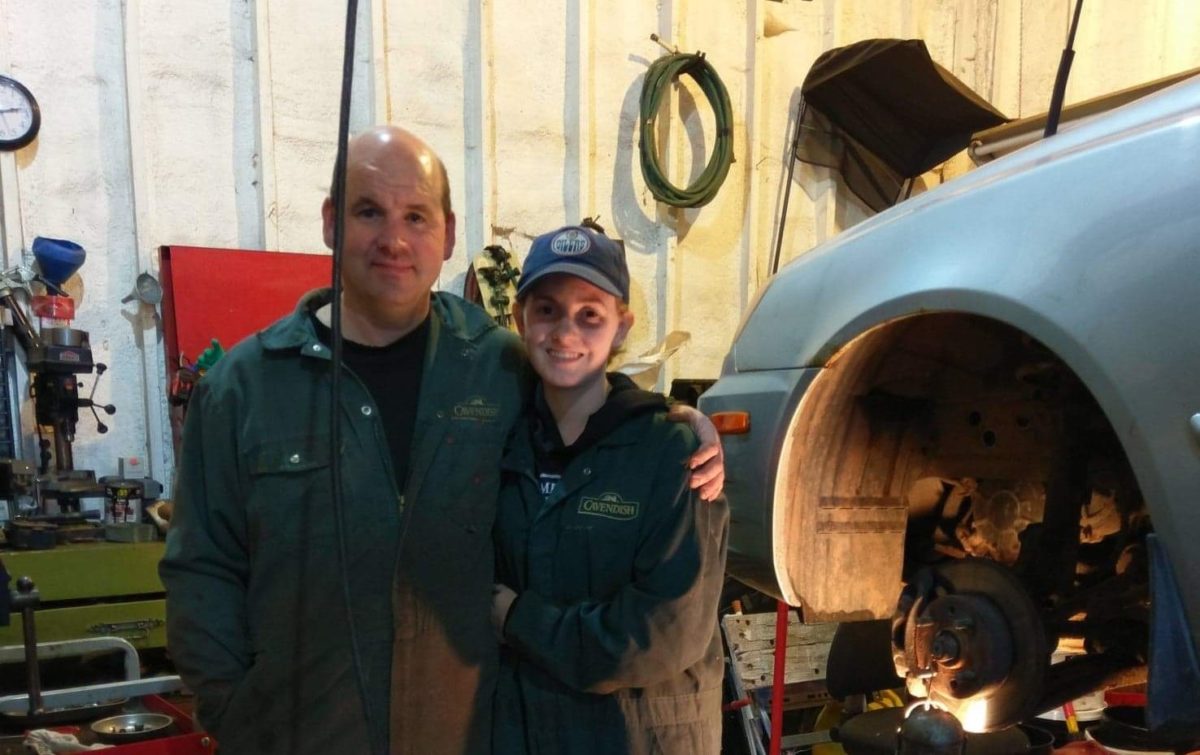
Fiona Steele asks whether institutions like STU are guilty of classicism when it comes to the rural working class
Let me bring you back to the summer after my Grade 11 year. It’s boiling inside my 2003 Hyundai Accent because the AC, like the radio, is broken. After turning onto a red-dirt road in rural Prince Edward Island, I’m speeding up to 60 km/h when the car visibly jumps. It feels just like letting the clutch out too quickly and stalling – except I was driving an automatic. The car doesn’t stop but starts revving around 4,000 RPMs. So, I drive slowly back home, wait for my dad to finish working, and worry. When he’s home, I explain what happened.
My dad calls the local Hyundai dealer and explains the problem. They tell him he needs to pay over $2,500 for a new transmission. That’s a lot of money considering we only paid $700 for the car. Once off the phone, we drive the car into the garage and hoist it, spending the next few hours trying to find something wrong. After opening the transmission, he finds that a little part called a thrust bearing has blown apart. We replace it, and a few other parts – for $150 total. And that’s it; it was fixed. By having technical knowledge, he saved us over $2,300.
After moving to Fredericton, I realized memories like that don’t happen to everyone. Not all kids grow up learning how to install drywall, roof a house and fix cars. But that’s just how I was raised. When I broke something, I usually wound up learning how to fix it. It’s created this sense of pride in what a lot of people call blue-collar labour.
So imagine my surprise when I discovered that not everyone has the same perspective. On just the second day of classes, my second week living in Fredericton, a professor of all people, trashed the trades. He told the class how great it was we weren’t just attending some community college to become a “damn” repairman, but instead a liberal arts school. That professor is now one of my favourites, but that day I felt belittled.
That feeling of otherness, of not belonging because I come from a working-class family, has been happening since arriving at STU. People shrug me off because of my dad’s job, saying, “Oh, he’s just a repairman.” Worse, he works for the Irvings. Others turn their noses up when I say my mom works from 6 a.m. to 11 p.m. shipping potatoes some days.
In two years here, I’ve discovered there’s this huge disconnect between the skilled trades and people attending this liberal arts school. Many people see those without university degrees as slow or second-rate. I find that concept appalling because I don’t see intelligence as a linear path passing through university halls.
Let me explain what I mean by “linear.” These days, some people judge a person’s intelligence according to what post-secondary school they attend and their grades in that school. Not a lot of STU people I’ve talked to accept that someone can be smart without ever knowing how to construct a thesis.
At STU, they stress critical thinking as something you can only grasp thanks to a liberal arts university. Professors define it as an ability to reject the status quo, question what you see and think outside the box. But isn’t critical thinking just another word for problem solving? Think about it.
My dad, who only attended college, uses problem solving all the time. In any day, he has no idea what his work will consist of. Machines are unpredictable and can break anytime. He needs to know all the different machinery and be able to recall that information in an instant to find a solution when it malfunctions. He also used critical thinking that day with my car when he questioned what the car dealer told him and found a solution on his own.
At STU, they teach open-mindedness, in seeing other people without judgment. But I’ve noticed that outlook doesn’t always extend to rural, working-class people. In other words, I feel a lot of classism here. Just because someone doesn’t attend a liberal arts school doesn’t mean they aren’t worth the same respect.
I thought since I’m talking to a university audience here, I should conclude with some sort of theory. The big picture. Critical thinking. Class consciousness. Some kind of right-educated thing.
So here it goes.
If we look beyond this university setting, this divide between typically rural, working-class people and what you’d call “educated” folks is becoming wider. We see it in American politics. And it exists in Canadian politics too. Too often we hear non-university people referred to as the uneducated. Too often rural people are depicted as less open-minded than their urban counterparts. Too often, the other side is talked about like they are the enemy. And too often, blame tends to fall on rural people for not being “educated,” when in reality, sometimes it’s that “educated” people aren’t understanding the world other people live in.
Maybe that was more of a rant than a theory.
And despite everything I’ve learned from my father, I don’t know how to get under the hood and fix the transmission of this liberal arts university – get it in the right gear for creating a better world for all of us. And I don’t think it’s going to be as simple as finding that thrust bearing to replace. But I think it starts with true open-mindedness. Once people are open-minded, it can lead to curiosity. And curiosity can lead to understanding. And understanding leads to respect.
And respect makes getting where you’re going a lot easier, whether you’re driving on the information super highway or the red-dirt roads of P.E.I.
